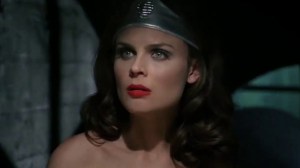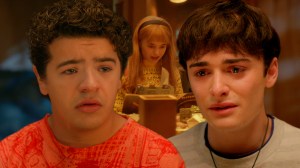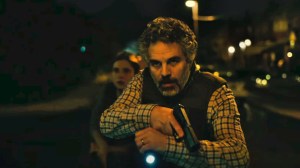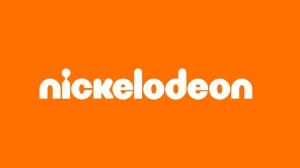The latest entry in Pixar’s Toy Story franchise is nearly upon us and now that the review embargo has lifted, Toy Story 4 has become one of the animation studio’s most critically acclaimed projects. Yesterday, the film debuted with a rare 100 percent rating on Rotten Tomatoes and not even 24 hours later, it continues maintaining that flawless rating, except now it has a distinguished Certified Fresh badge from the review-aggregating site.
Videos by ComicBook.com
That’s right, a day later and 87 reviews in and the movie still holds strong with a perfect 100 percent rating, matching both Toy Story and Toy Story 2. As of now, the only non-perfect entry in the franchise is Toy Story 3, which has a 98 percent rating on the site.
The franchise has long been a tentpole for Pixar. Critically, the four Toy Story films are some of the best-reviewed projects the company has released while commercially, the first three movies (and a 3D re-release) have grossed nearly $2 billion worldwide.
Keep scrolling to see what some critics are saying about Toy Story 4, which is due out June 20th.
Cameron Bonomolo – ComicBook.com
“Even Toy Story 4, which reads as the last rodeo for the old cowboy, is more the end of one chapter than the end of a book. The film proves there was enough life left in these old toys for at least one more go, and repeatedly justifies its albeit imperfect existence across its 100-minute runtime. Even after the perfect ending of Toy Story 3, its sequel not only feels earned, but proves to be the necessary next step after that teary-eyed ‘so long, partner.’”
You can read the full review here.
Brian Lowry – CNN.com
“Toy Story 4 delivers a cinematic grand slam, a nine-years-later sequel that’s wholly equal to the high expectations raised by the terrific trio that it follows. Touching, raucously funny, adventurous and yes, even profound, Pixar’s signature property once again touches them all.”
You can read the full review here.
Darren Franich – Entertainment Weekly
“Is this a cash grab? Toy Story 4 doesn’t hit the emotional highs of the previous films. There are good jokes that work and heist setpieces that don’t. The ending is moving, though now you distrust any finality with this saga. It does feel a bit cheap, somehow: Another movie drifting melancholy off forgotten toys, from a 25-year-old multimedia franchise starring global icons preparing to gross yet more multigenerational billions.”
You can read the full review here.
Oliver Jones – Observer
“But this particular film, in which a cowboy toy from the 1950’s tries to find purpose in a world that has passed him by, is not really about them; it’s about you, about us—the middle-agers who helped raise them and are now wandering around pretending not to be terrified by what’s next.”
You can read the full review here.
AA Dowd – AV Club
“It’s probably for the best that no one involved here tried to match the fatalism and even pensiveness of Toy Story 3; there would have been no topping that film’s twin climaxes, the moments when Pixar forced its most beloved creations to nearly meet their maker, then to say goodbye to the boy who gave their lives meaning. Toy Story 4 is a breezier affair, up to and including an ending that feels a few hankies shy of full tearjerker, landing on a note of conclusion that the movie barely seems to pretend will really hold this time.”
You can read the full review here.
Bilge Ebiri – Vulture
“That’s not to say that this isn’t still Pixar. I won’t give away the film’s climax, but I will say that the inevitable tears are jerked in layers: There’s one emotional climax for those viewers who are new to the series, another for those who have only vague memories of the previous films, and yet another for those who’ve totally grown up on these pictures. It’s a generous, inclusive approach, an acknowledgment that each person sees a different movie. Toy Story 4 is messy but in the best possible way.”
You can read the full review here.
Nicholas Barber – BBC
“Ultimately, Toy Story 4 is about Woody learning that toys may not be as precious to children as he likes to think, but it can’t delve too deeply into that thesis without undermining the premise of the entire series, and so it settles with a muddled, compromised message: some toys are important and other toys aren’t important; some toys need to be with children and others can get along fine without them.”
You can read the full review here.








